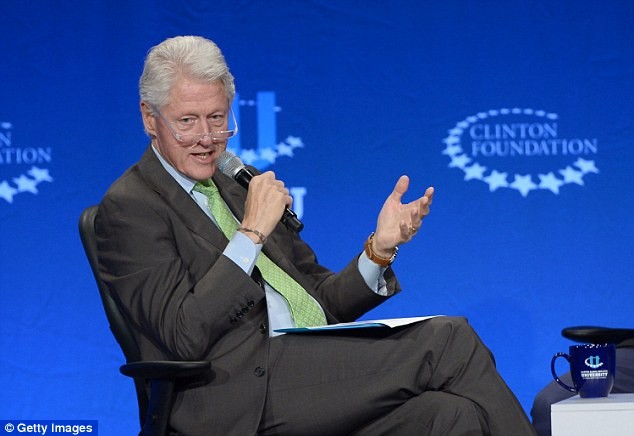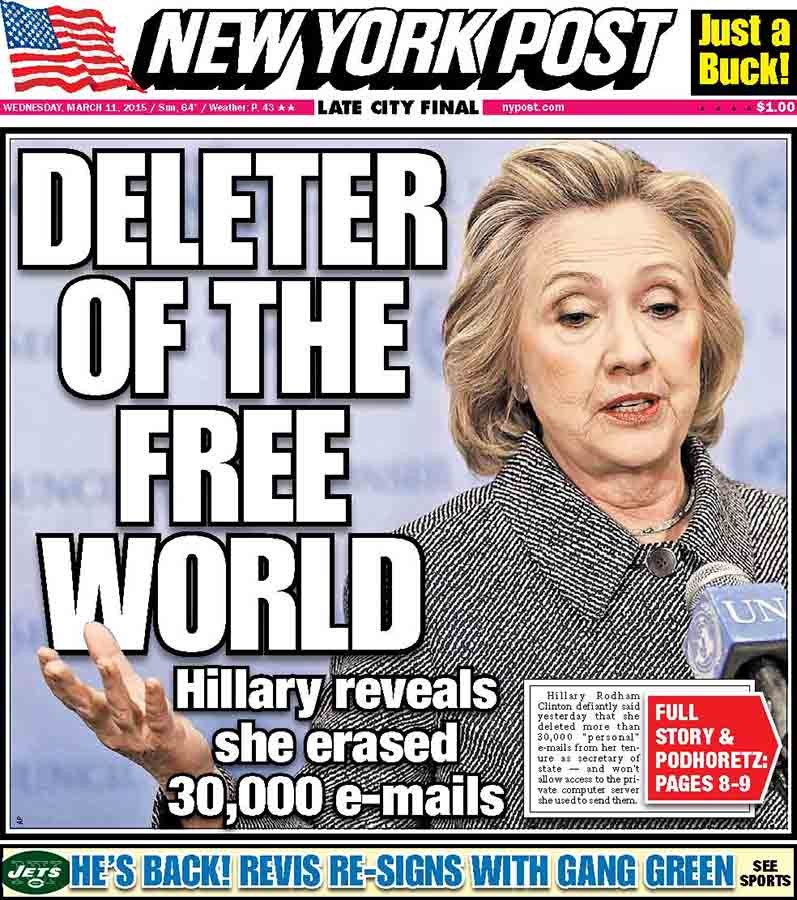Hillary s EMails May Cost Taxpayers Millions
Post on: 24 Апрель, 2016 No Comment

307 Mar 10, 2015 6:00 AM EDT
The State Department is beginning to sort through more than 55,000 pages of e-mails from Hillary Clinton’s tenure as secretary that she handed over late last year, sticking taxpayers with additional costs that could reach into the millions. It’s an additional burden for her former department and another aspect of an e-mail fiasco her political opponents plan to highlight.
Clinton’s office sent the e-mails to the State Department last December, a portion of the total in her possession, after printing them out and stacking them in boxes. The department largely sat on them until last week, when news broke that she had used a homebrew server rather than her government account to conduct her official business. Clinton tweeted last week that she wanted the State Department to release her e-mails, but she hasn’t acknowledged what a huge job it will be for her former employees.
On March 5, Secretary of State John Kerry pledged that the department would work “as rapidly as possible” to go through all the new documents, redact any sensitive information, and then release them to the public. The department has since said that the effort will take several months.
Representative Mike Pompeo, a member of the House special committee on Benghazi that is subpoenaing Clinton’s personal e-mails, told us that based on his committee’s experience sorting through 44,000 other hard-copy paper documents provided by the State Department last year, the new effort could involve hundreds and hundreds of man hours.
“I think the effort of reviewing these documents will greatly exceed a million bucks,” said Pompeo. “The United States taxpayer is going to pay for that.”
The State Department must have employees review every page to ensure that no sensitive or classified information will be released. Those redacted documents must then be scanned and compiled into a database searchable by the public.
If Clinton had used her departmental e-mail account — as she insisted her employees do during her tenure — the messages would already be in the government’s electronic records management system and could be redacted and released as part of the regular Freedom of Information Act process, Pompeo said.
“Remember, this challenge was created when a government employee decided not to use the government system,” he said. “This is another reason that the directive secretary Clinton gave to all State Department employees to use the official system actually did matter.”
Senator Lindsey Graham, chairman of the Senate Appropriations Committee’s state and foreign operations subcommittee, told us Monday he would demand to know exactly how much Clinton’s decision to run her e-mail service out of her Chappaqua, New York, home would cost. “This is just one more ramification of Secretary Clinton working outside the system and playing by her own rules, he told us. “I’m going to be asking the State Department how many man hours of work this will require, how much money it will cost and whether or not they think they should pay for it.”
Alec Gerlach, a State Department spokesman, told us staff members would take several steps to minimize the expense of reviewing and releasing the e-mails, although he said there was no firm idea exactly how much it will cost.
“The department has an existing infrastructure to review documents for FOIA release,” he said. “Given the considerable public interest in these documents, and in order to proceed in a manner that is less resource-intensive and more economical, the department plans to review the 55,000-page collection one time and to publish the documents to our public FOIA website for use by all requesters and interested parties.”
Nick Merrill, a Clinton spokesman, declined to comment on whether she would reimburse the department for the review, but he pointed out that federal regulations specify that documents to be reviewed for declassification should be printed out.

Jim Tozzi, a former Office of Management and Budget official who served in five presidential administrations, told us that the process would involve multiple reads of the paper documents to highlight what might be sensitive, followed by subject-matter experts being brought in to make determinations.
It’s not only the time of printing out the paper and reviewing it, it’s the next step of redacting it, added Gary Bass, the founder of the nonprofit group OMB Watch (now called the Center for Effective Government. It’s a very lengthy process.”
These costs will likely be compounded by disputes over the full body of Clinton’s e-mails during her time as secretary, said Ryan Shapiro, a documents researcher at the Massachusetts Institute of Technology: By handing over only a portion of her e-mails for review, Secretary Clinton not only continues to withhold important records from the public, she is also all but inviting FOIA lawsuits seeking access to her still undisclosed mail.
As secretary, Clinton professed to being a budget hawk, imploring her employees not to waste resources. “It’s up to us to show the American people and their representatives in Congress that every dollar given to the State Department and USAID is a wise and effective investment in advancing the values, the interests, and the security of the United States of America,” she said at a State Department town hall meeting in January 2012.
Yet the investigation into how she handled her e-mail is now underway at great expense to taxpayers and the agency she ran.
And she, too, may pay a heavy price. The process is sure to linger well into the 2016 primary cycle, meaning the release of the documents will provide another period of scandal for her all-but-certain presidential campaign.
To contact the authors on this story:
To contact the editor on this story:














